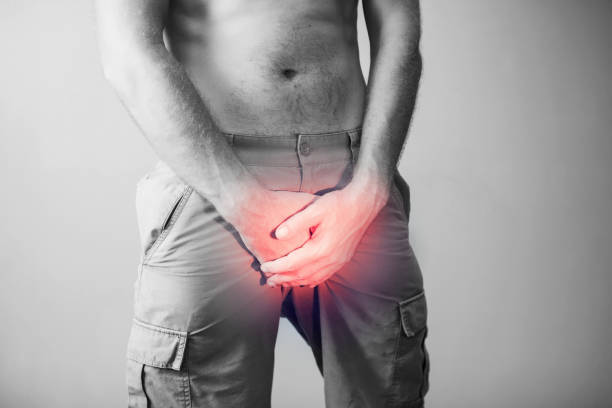
Book An Appointment
“Book an appointment for a consultation with our medical professionals today.”
Premature Ejaculation
Premature ejaculation (PE) is a common sexual problem characterized by ejaculation that occurs sooner than desired, often within one minute of penetration. It can cause distress and relationship issues for men and their partners. While the exact cause of PE is not always clear, psychological factors such as anxiety, stress, and performance anxiety can contribute to it. Additionally, physical factors such as hormonal imbalances, abnormal reflex activity of the ejaculatory system, and certain medical conditions can play a role.
Treatment for premature ejaculation typically involves a combination of behavioral techniques, psychological counseling, and medication. Behavioral techniques may include the stop-start method, the squeeze technique, and pelvic floor exercises to strengthen control over ejaculation. Psychological counseling can help address underlying issues such as anxiety or relationship problems. Medications such as selective serotonin reuptake inhibitors (SSRIs), topical anesthetics, or phosphodiesterase-5 inhibitors may be prescribed to delay ejaculation.
It’s essential for individuals experiencing premature ejaculation to seek professional help from a healthcare provider or sex therapist. Open communication with a partner is also crucial in managing PE and improving sexual satisfaction for both partners. With the right approach and treatment, many men can successfully overcome premature ejaculation and enjoy fulfilling sexual relationships.
Type Of Premature Ejaculation
- lifelong Premature ejaculation
- acquired Premature ejaculation
Lifelong Premature ejaculation
Lifelong premature ejaculation (PE) is a type of PE where a man experiences rapid ejaculation since the beginning of his sexual life. It’s often attributed to psychological, neurological, or genetic factors.
Psychological factors may include anxiety, performance pressure, or conditioned responses from early sexual experiences. Neurological factors might involve abnormalities in serotonin levels or heightened penile sensitivity. There could also be genetic predispositions influencing ejaculatory reflexes.
Men with lifelong PE often find it challenging to control their ejaculation, leading to distress and difficulties in relationships. It can affect self-esteem and intimacy.
Treatment for lifelong PE typically involves a combination of behavioral techniques, psychological counseling, and sometimes medication. Techniques such as the stop-start method or the squeeze technique can help delay ejaculation. Counseling can address underlying psychological issues contributing to PE. Medications like selective serotonin reuptake inhibitors (SSRIs) or topical anesthetics may be prescribed to help manage symptoms.
Seeking professional help is crucial for effective management of lifelong premature ejaculation. Open communication with a partner is also important for understanding and support. With the right approach, many men can achieve improved ejaculatory control and enhance their sexual satisfaction and relationship quality.
Acquired Premature ejaculation
Acquired premature ejaculation (PE) is a type of PE that develops later in life, after a period of normal ejaculation. It can result from various factors including psychological, biological, and situational triggers.
Psychological factors contributing to acquired PE may include stress, anxiety, relationship problems, or sexual performance pressure. Situational factors such as changes in sexual routine or experiencing a new partner can also play a role.
Biological factors may involve hormonal imbalances, thyroid disorders, prostate problems, or neurological issues affecting the ejaculatory process. Additionally, certain medications, substance abuse, or underlying health conditions can contribute to acquired PE.
Men experiencing acquired PE often find it distressing and disruptive to their sexual satisfaction and relationships. It can lead to feelings of inadequacy and frustration.
Treatment for acquired PE typically involves addressing underlying factors. This may include therapy to address psychological issues, such as cognitive-behavioral therapy (CBT) or relationship counseling. Medications such as selective serotonin reuptake inhibitors (SSRIs), which can delay ejaculation, may be prescribed in some cases.
Behavioral techniques such as the start-stop method or the squeeze technique can also help improve ejaculatory control. Making lifestyle changes such as reducing stress, practicing relaxation techniques, and maintaining a healthy lifestyle can also be beneficial.




Ishan Clinic
Premature Ejaculation
Premature ejaculation is when ejaculation occurs sooner than desired, causing distress. Treatment options include therapy, medications, and behavioral techniques.